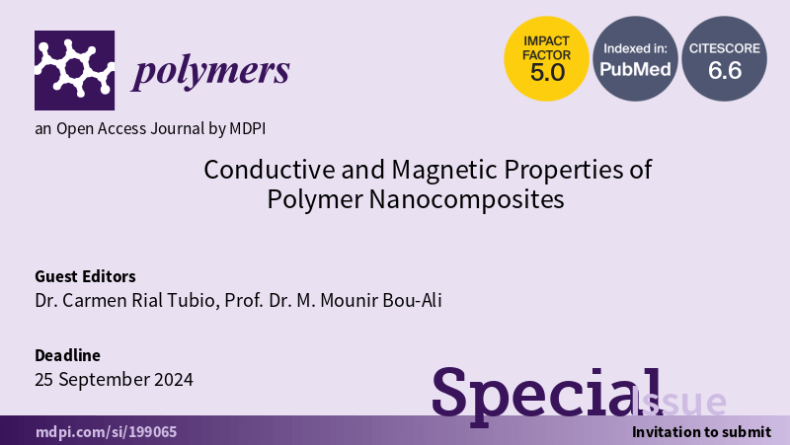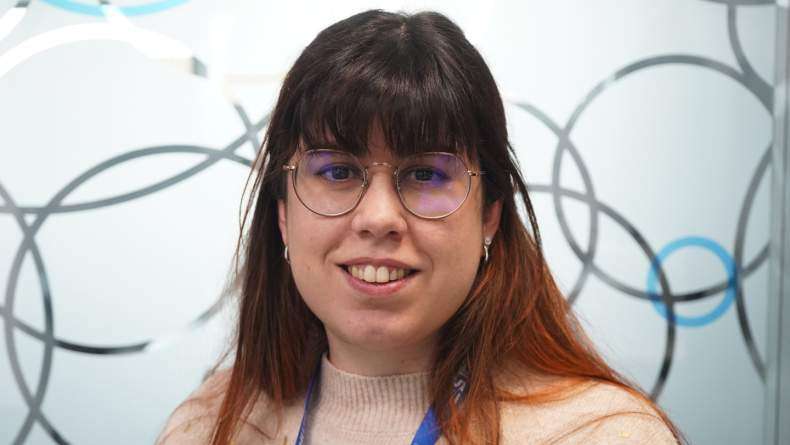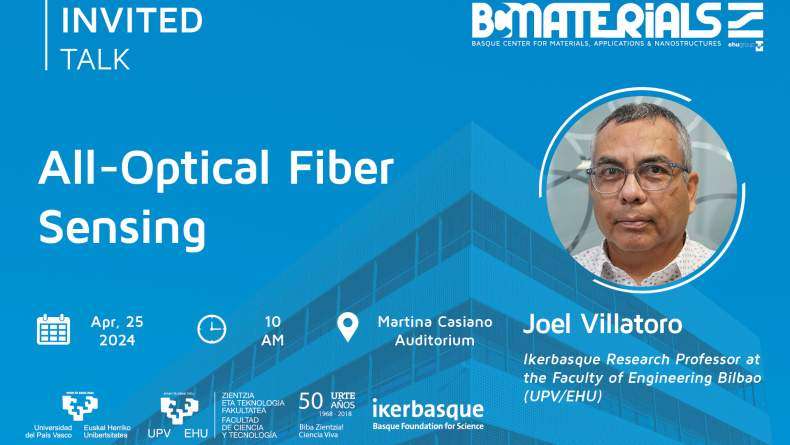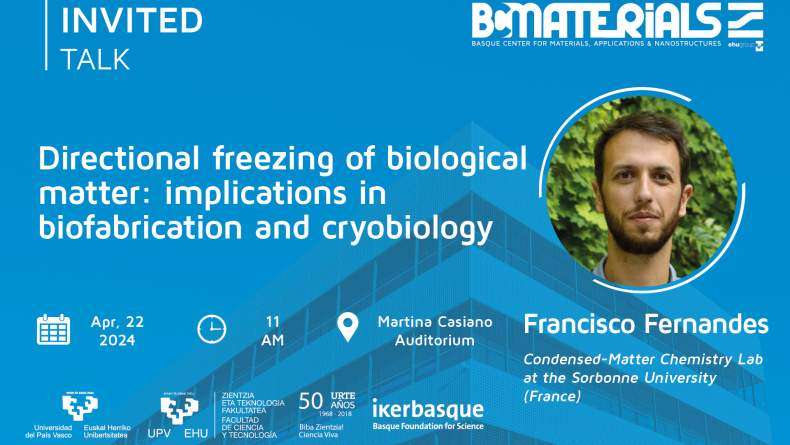BCMaterials Fortnightly Seminar #85 Sofía Domínguez - Cristian Mendes - Liliana Fernandes

SOFÍA DOMÍNGUEZ
(BCMATERIALS)
Metal organic frameworks for heavy metals elimination
Contamination of clean water resources by heavy metals is a major environmental concern. Therefore, research is focused on developing filters with high selective and capacitive active materials to capture heavy metals in order to solve this problem. MOFs, which are polymeric metal organic frameworks having an ordered and crystalline structure, have appeared as a novel and promising adsorbents among others such as composites, zeolites, silica nanoparticles, etc., due to their potential to capture different kind of organic and inorganic chemicals.
CRISTIAN MENDES
(BCMATERIALS)
The influence of the postcuring process on the properties of 3D printed pieces
The three-dimensional (3D) printing technology have changed the modern manufacturing of many objects. Thus, stereolithography (SLA), one 3D printing technique, is becoming at an important technique to construct numerous small pieces and, in particular, a much applied technique in research. However, it has numerous drawbacks such as the limited amount of materials available or the lack of knowledge of the properties of the final piece. For this reason, as it was observed that the curing during the printing process is incomplete, in this work it has been evaluated the influence of the postcuring process on the final properties of the printed pieces. Two type of postcuring process has been selected in this study, both at room temperature: the effect of the time, and the effect of the exposure to an UV light. Both postcuring methods have been proven effective to fully postcured the pieces after 30 hours. In addition, it has been observed that the thermal properties of the material do not depend on how the postcuring process is. Nevertheless, a homogenous high crosslinked material with better mechanical properties is obtained with the UV postcuring process.
LILIANA FERNANDES
(BCMATERIALS)
Magnetic field perturbations induced by thermoelectric effects
Magnetic fields arising from thermoelectric currents can contribute to the measurement degradation of sensitive instruments. This fact has been experienced in satellites and spacecrafts and can have important implications in orientation and communication systems. However, its origin is not completely understood and extend thermoelectric/ magnetic formulations to better understand specific conditions that occur in space mission scenarios and to predict the magnetic fields generated from thermoelectric currents in space mission environments is needed. Computational simulations have been used to study these thermoelectric/ magnetic effects to be further validated by experimental results with the objective of identifying and developing possible mitigation technologies.
Related news
Call for papers – ‘Polymers’ Special Issue
BCMaterials researcher Dr. Carmen Rial has been selected, along with Prof. Dr. M. Mounir Bou-Ali from the University of Mondragon (Spain), as Guest Editor for the special issue of Polymers (ISSN 2073…Eloie Gallego, New Research Technician Assistant
BCMaterials welcomes Eloie Gallego, who joins our center as new Research Technician Assistant. She will work giving service to a growing laboratory activity in our facilities. Eloie’s academical and…Invited Talk with Joel Villatoro on April 25
On April 25, BCMaterials will receive Dr. Joel Villatoro as a new invited speaker with the talk entitled “"All-Optical Fiber Sensing". The talk will start at 10:00 at the Martina Casiano auditorium (…Invited Talk with Francisco Fernandes on April 22
BCMaterials will offer a new invited talk on April 22 with Francisco Fernandes, Associate Professor of the Condensed-Matter Chemistry Lab at the Sorbonne University (France) The talk will begin at…



